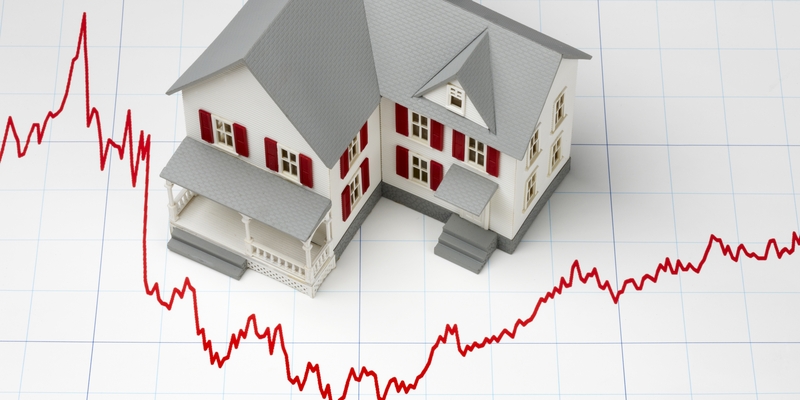
If you are not redirected within 30 seconds, please click here to continue.
Samedi: 10h – 16h HAE

If you are not redirected within 30 seconds, please click here to continue.
If you are not redirected within 30 seconds, please click here to continue.
$23,579: This is how much more a variable-rate could have cost homeowners over fixed-rate

Table of Contents
For Canadian homeowners and even those considering purchasing a home, the Bank of Canada’s (BoC) rate hikes over the past year and a half have been top of mind.
Increasingly, Canadian mortgage holders are being squeezed for monthly payments and more and more variable-rate mortgage holders with fixed monthly payments have reached their trigger rate, the point at which their payments can’t even cover their interest. To accommodate the spike in interest, many lenders are even extending amortization periods to 30 years or longer.
For a brief period during the pandemic, variable-rate mortgages seemed like the most financially sound way to go, even if the risks were known to consumers. But as interest rates remain perilously high, many homeowners find themselves paying far more than they gambled for.
Interest payments soar for holders of variable rate mortgages
RATESDOTCA recently compiled data looking at the difference in fixed- versus variable-rate to see how much more in interest someone with a variable-rate would have paid over the course of a mortgage loan taken out in July 2021 versus someone who took out a fixed-rate mortgage at the same time.
For the purposes of this article, we looked at two profiles: a variable-rate and a fixed-rate mortgage holder*. Both took out a five-year insured mortgage of $500,000 in the low-interest days of 2021 — the fixed-rate mortgage holder locked in a rate at 1.99% while the variable-rate mortgage holder began at a rate of 1.25%.
The data shows that ten rate hikes in, the individual who had chosen a variable-rate mortgage — let’s call them Bob — has paid $23,579 more as of September 2023 in cumulative interest as compared to what they would’ve paid had the rate remained unchanged.
Moreover, the data highlights that Bob has paid 63% more in total interest than the fixed-rate mortgage holder, Lucy. And as the overnight lending rate increased, it took only six months for him to exceed the amount of interest paid monthly by Lucy.
So, by November 2022, Bob, with his variable-rate mortgage, had surpassed the total amount of interest paid by Lucy, the fixed-rate holder.
The variable-rate mortgage holder pays 63% more than the fixed-rate holder
As of September 2023, Bob has paid $33,968 in total interest since the beginning of their mortgage. Had he opted for the fixed rate, like Lucy, he would have paid $20,768. That means that, because he went for the variable rate, he has now paid 63% more in cumulative interest.
When he took out a mortgage in July 2021, Bob was paying 1.25%, as per the overnight lending rate set by the Bank of Canada. That equaled a monthly mortgage payment of $1,940.
Meanwhile, Lucy — holder of a $500,000 five-year, fixed-rate mortgage — was paying $2,114 at the rate of 1.99%, since the BoC’s policy rate does not directly impact fixed-rate mortgages.
The Bank of Canada (BoC) began raising rates in March 2022. By May, Bob’s interest rate, at 2%, had exceeded Lucy’s 1.99% fixed rate.

And by the following December, Bob had paid $14,793 in total cumulative interest — over $1,000 more than Lucy’s $13,745 in cumulative interest.

By that time, Bob’s interest rate was 5.25%.
From the time he took out the mortgage to now, Bob will have seen a $1,199 increase in his own monthly mortgage payments due to ballooning interest rates. As of September 2023, his interest rate sits at 6%.
The variable-rate mortgage holder has paid $23,578 in interest since they took out their mortgage two and a half years ago
It was not obvious when he took out that mortgage back in July 2021 that Bob would be paying so much more in interest down the road. After all, he started at a lower rate and had every reason to assume it would stay low.
But as interest rates started to climb nearly a year later, he started to see his mortgage payments increase exponentially. He went from paying $1,941 in March 2022 to $2,921 in March 2023 — a 51% jump in payments.
Between taking out his mortgage and now, the amount going to interest every month shot up from approximately $500 to over $2,000 monthly — a four-fold increase in interest in less than two years.
Cumulatively, as a result of the rate hikes, Bob has paid $23,579 in interest.
As the BoC keeps waffling between hiking and not hiking, variable-rate mortgage holders pay the price
Bob is not unique. Victor Tran, a mortgage and real estate expert with RATESDOTCA explains that while traditionally, Canadians have vastly preferred fixed-rate mortgages over variable, variable-rate mortgages saw a renewed interest during the pandemic.
“Variable-rate mortgages only surged in popularity when interest rates were rock-bottom during the early days of the pandemic,” he says.
Fueled by a white-hot housing market and low interest rates, variable-rate quotes on RATESDOTCA comprised 57% of total mortgage quotes by July 2022. But as the BoC steadily increased the overnight rate, consumer interest in variable-rate mortgages dropped, falling to 26% of total mortgage quotes in December 2022.
Variable-rate homeowners that opted to take advantage of historically low interest rates earlier may be regretting their choice. As the BoC walks the tightrope between inflation and other core measures, and grapples with the decision to increase or pause rates with each announcement, some variable-rate holders might even consider either refinancing their mortgage and switching to a fixed rate mortgage, or waiting out until their renewal date to make the jump.
“For some, the benefits of variable rates, such as potential lower penalties compared to fixed, and the potential to gain from future rate decreases will be attractive,” says Tran. However, he adds, this decision depends on each homeowner’s financial circumstances and goals, as well as where rates are when that person is renewing.
“Others will prefer having a fixed-rate mortgage for payment stability and financial planning,” he says.
Given the current inflationary economy, it’s easy to imagine all the other useful places that increased amount of interest that Bob has paid could have gone to: a car loan payment, perhaps, or a few months’ worth of groceries, or even towards their kids’ college tuition fund.
And while Bob has a few years left of his mortgage, if you’re approaching a renewal — or are considering refinancing — your best bet would be to compare rates across various mortgage lenders.
Methodology*
For purposes of calculating the mortgage payment schedule, RATESDOTCA used the following profile:
- The mortgage started on July 1, 2021.
- $500,000 five-year insured fixed-rate mortgage at the rate of 1.99%, with a 25-year amortization period.
- $500,000 five-year insured variable-rate mortgage at the rate of 1.25%, with a 25-year amortization period.
- Calculations assume no lump sum or pre-payments.
Compare Mortgage Rates
Engaging a mortgage broker before renewing can help you make a better decision. Mortgage brokers are an excellent source of information for deals specific to your area, contract terms, and their services require no out-of-pocket fees if you are well qualified.
Here at RATESDOTCA, we compare rates from the best Canadian mortgage brokers, major banks and dozens of smaller competitors.
Get money-saving tips in your inbox.
Stay on top of personal finance tips from our money experts!









